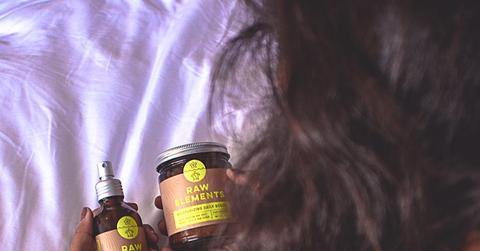This Hotel In Hawaii Gives Out Sunscreen That Protects Coral Reefs
Aqua-Aston Hospitality, who hosts over 40 different hotels in Hawaii, is promoting sunscreen without oxybenzone to help keep our coral reefs safe.
Updated Nov. 19 2020, 9:39 p.m. ET
Coral bleaching runs rampant through coastal waters around Australia, Florida, and Hawaii. A number of factors contribute to turning corals white, such as warming waters and tourists that use sunscreen containing oxybenzone. In Hawaii, one hotel chain gives away sunscreen that strives to protect the vulnerable coral reefs.
Dating back to last April, Aqua-Aston Hospitality has handed out more than 35,000 free samples of their reef-safe sunscreen. The hotel chain has 40 different locations across the state and has an average of 5.5 million guests each year. They’ve since added sunscreen dispensers at their hotels, and other locations, like the Waikiki Aquarium, have done the same.
Aqua-Aston is also eliminating single-use plastics by giving the sunscreen away in a tote bag that also holds a reusable water bottle. Tote bags have been the common item to replace plastics at grocery stores. In addition to providing the free swag, the company is also educating people on the dangers of coral bleaching.
"We're really all in this together,” Theresa Van Greunen, PR director of Aqua-Aston Hospitality, told KITV. “One company can't tackle this alone, so we're really trying to reach out to our community leaders and raise the volume on this issue.”
Why is it important to reduce coral bleaching in our waters? It’s a habitat for fish larvae that wouldn’t survive if those reefs are dead. While bleached coral can still become healthy again when water temperature is down, that can take up to months, while it only takes weeks for it to turn from white to a dead skeleton.
Not only do these reefs help provide seafood, they can also protect coastlines from powerful storm surges. We’ve seen pharmaceutical drugs be developed from coral reefs, such as Ziconotide. They’re also beautiful for tourists to gaze at, and while that’s on the lower end of benefits, observing nature can help us destress.
Back in 2015, a study was first released on the dangers of oxybenzone in sunscreen. That was questioned by Terry Hughes, who studies coral reefs at James Cook University, noting that the study was done in artificial seawater, contained limited data, and didn’t like the media running with a headline that sunscreen was killing coral reefs.
Biologist Mike van Keulen from Murdoch University echoed those thoughts, but believed that the worry was worth looking into. After all, there’s already a lot of pollution that gets into the ocean also hurting coral reefs, such as microplastics and sewage waste. Swimmers at these tourist locations are recommended to use sunscreen made with biodegradable material.
